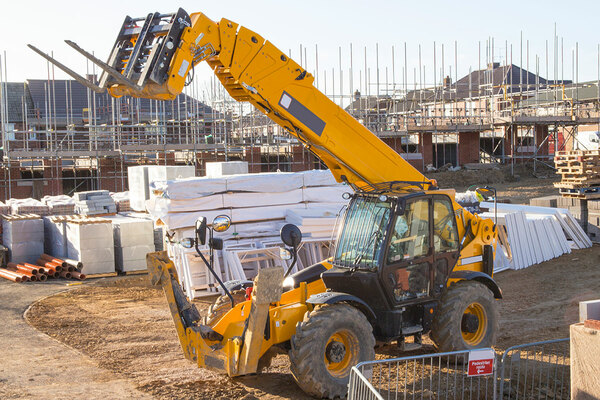You are viewing 1 of your 1 free articles
I have never heard social landlords describe people as ‘vulnerable’ as often as I have recently. We must stop talking like this
Social landlords have been patting themselves on the back for contacting thousands of their ‘most vulnerable’ tenants during the pandemic – this language is disempowering and must change. And don’t get me started on ‘Homes for Heroes’, writes Tony Stacey
I have argued in previous IH50 blogs that our history matters. Reinforcing a clear line of sight to the founding mothers and fathers of our organisations, celebrating our purpose and why we were set up in the first place were motivations for those of us who set up the Homes for Cathy group. Three years on and the group has flourished and grown to more than 100 members. Between us, we manage more homes than the G15 group (more on them later).
Today’s blog takes a different theme: language matters.
As a social housing sector, we have been making what I think are some serious mistakes in our responses to coronavirus. Our repeated use of the term “vulnerable people” to describe people we work with and, in the process, to glorify ourselves as good guys, rescuers and heroes is othering in the first degree.
There has been far too much back-patting. Haven’t we as leaders done well? Haven’t we been clever switching to online services – and so quickly? Haven’t we been kind by ringing thousands of our “most vulnerable” tenants? I have never heard the word “vulnerable” used as often by social housing organisations as I have in the past five months. We need to stop talking and thinking like this.
The words we use matter. Words shape our culture and our services, they also change how we feel about each other and ourselves. Categorising the people we work with in one way, while describing ourselves in another is disempowering and creates division. Making ourselves feel good at other people’s expense is never OK – however unconsciously we may be doing this.
In South Yorkshire, before the coronavirus crisis, we set up a local group of housing professionals and tenants to talk about engagement. We discussed the the National Housing Federation framework, Together with Tenants, and considered the lessons from Julia Unwin’s Civil Society Futures commission and how their ‘PACT’ model might work.
We have carried on meeting during lockdown. One of the most telling contributions, for me, came from a housing officer who said her association had geared up to get rescue packages out to their estates only to find that their local communities had self organised and beaten them to it.
Sometimes the best thing we can do is just get out of people’s way, cheer them on and ask what we can do to support them.
And so to G15. The organisation is a force for good in the social housing world – doing great stuff on Black Lives Matter, for example. I hesitate before criticising their latest campaign but the title ‘Homes for Heroes’ is all wrong.
I understand, of course, why they found it irresistible to echo the World War I message, but at what a cost. The campaign is geared to generate support for funding housing “for heroes who have put themselves at risk to keep us alive and healthy”. We are right back in the territory of differentiating the deserving and undeserving poor.
“Categorising the people we work with in one way, while describing ourselves in another is disempowering and creates division”
I recently searched “vulnerable” on Twitter. First up was a much-retweeted message from Ivanka Trump celebrating her father’s Farmers to Families programme. I switched quickly to her Dad’s Twitter feed to see what his rant was on that day and it read “people in the suburbs will no longer be bothered by low-income housing in their neighbourhoods.”
All too often it is politicians who create vulnerability and then posture as rescuers with sticking plasters after the event. As social housing providers, we need to take a long hard look at ourselves – our policies, practices and, above all else, our language to ensure we aren’t part of the problem, too.
We can all be vulnerable. People die, relationships end and we muck things up. Sometimes these feelings come and go, sometimes they last for years. And sometimes it’s government policy, big business and our own organisations that create the problems. We need to break down barriers, not strengthen stereotypes. Here’s one wartime phrase I will invoke: “careless talk costs lives.”
Tony Stacey, chief executive, South Yorkshire Housing Association












